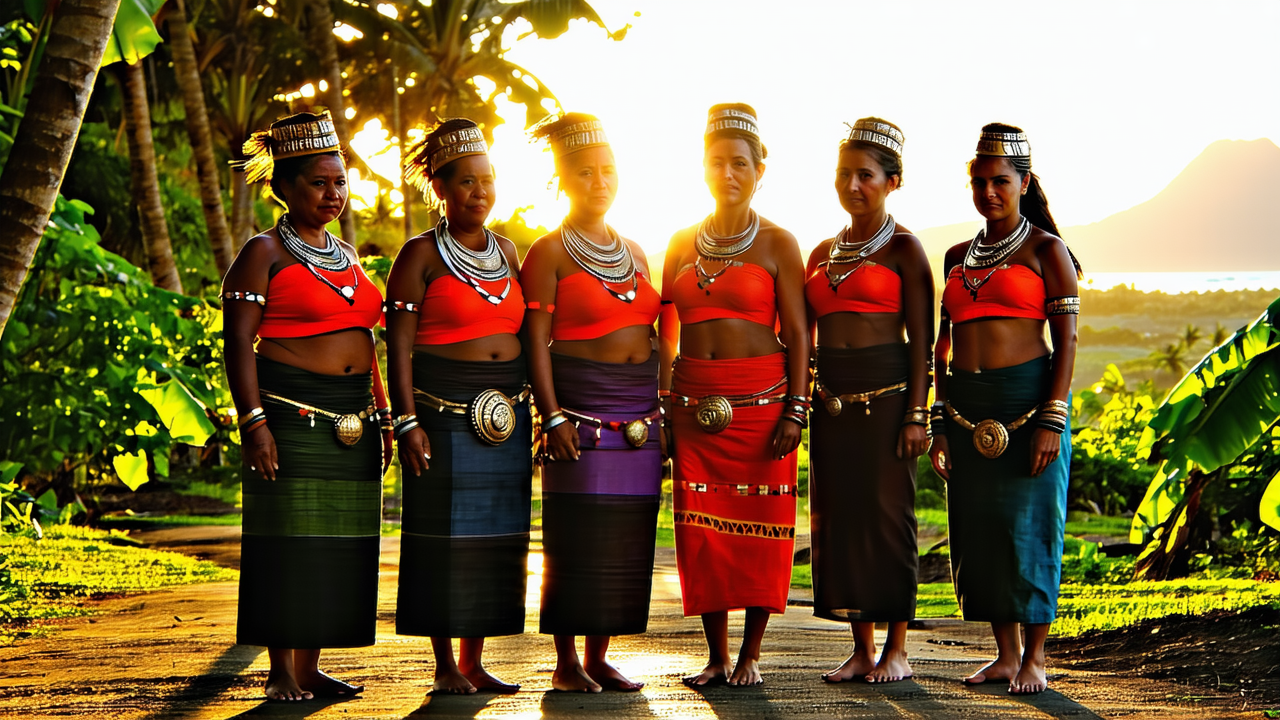Climate Change Ruling Marks a Victory for Cook Islands Women
A Landmark Ruling for Climate Justice and Women in the Cook Islands
In a groundbreaking decision, the International Court of Justice (ICJ) has affirmed that developing nations have the right to seek compensation for the devastating impacts of climate change, including the destruction of infrastructure and ecosystems. This non-binding ruling, though not legally enforceable, has been heralded as a major win for small island states like the Cook Islands, which are on the frontlines of the climate crisis.
At the heart of this victory is Vaine Wichman, president of the Cook Islands National Council for Women, who played a pivotal role in advocating for the rights of her people before the ICJ. Her submission, made during a hearing last December, emphasized the disproportionate impact of climate change on women and the cultural heritage of the Cook Islands.
“The critics of this unbinding legal agreement would say, ‘Oh well, it's not binding.’ They miss the point. It is documented in the highest legal court of the world,” Wichman said, reflecting on the significance of the ruling. “Women have a strong faith in believing that how you treat someone or something will reflect on you one day. Everyone knows the story of David and Goliath. Need I say more?”
The ruling came after six years of relentless advocacy, initiated by 27 law students from the University of the South Pacific in Vanuatu. Their frustration with the lack of global action on the climate crisis led them to push for an advisory opinion from the ICJ, a move that was later supported by the government of Vanuatu and the UN General Assembly.
The court was asked to address two key questions: What are countries’ obligations under international law to protect the climate and environment, and what are the legal consequences of inaction that significantly harms the climate and environment? The answers, as delivered by the 15 judges, have opened new avenues for legal accountability in the fight against climate change.
In the Cook Islands, the effects of climate change have been felt deeply. Warmer temperatures are wreaking havoc on ecosystems, making it increasingly difficult to source natural fibers and materials used in traditional crafts. These crafts, which are integral to the cultural identity of the Cook Islands, are not only a source of income for women but also a means of passing down traditions and heritage.
“The production of handicrafts is mainly based in the informal invisible sector,” Wichman explained. “This means that our women producers are not able to attract resources and support to assist in protecting the raw materials they rely on.” She stressed that the erosion of these natural resources not only threatens the livelihoods of women but also undermines cultural identity, language, and family traditions.
Wichman emphasized the importance of this ruling as a step toward gender equality and environmental justice. “This is a gender equality issue because women's food and handicraft products are not acknowledged in the production side of the country's national accounts,” she said.
The Cook Islands delegation, led by Sandrina Thondoo from the Ministry of Foreign Affairs and Immigration, made a compelling case before the ICJ, supported by research from the University of Queensland and Professor Karen McNamara. The success of the submission was also credited to the unwavering support of women across the country, who have long highlighted the unseen but significant impact of climate change on their communities.
As the world grapples with the escalating climate crisis, this ruling marks a pivotal moment in the global fight for environmental justice. It signals that the voices of small island nations and marginalized communities are being heard, and that legal mechanisms can be leveraged to hold governments accountable for their role in the climate crisis.
For the Cook Islands, this is more than a legal victory — it is a reaffirmation of their cultural heritage, the resilience of their people, and the power of collective action in the face of adversity.
